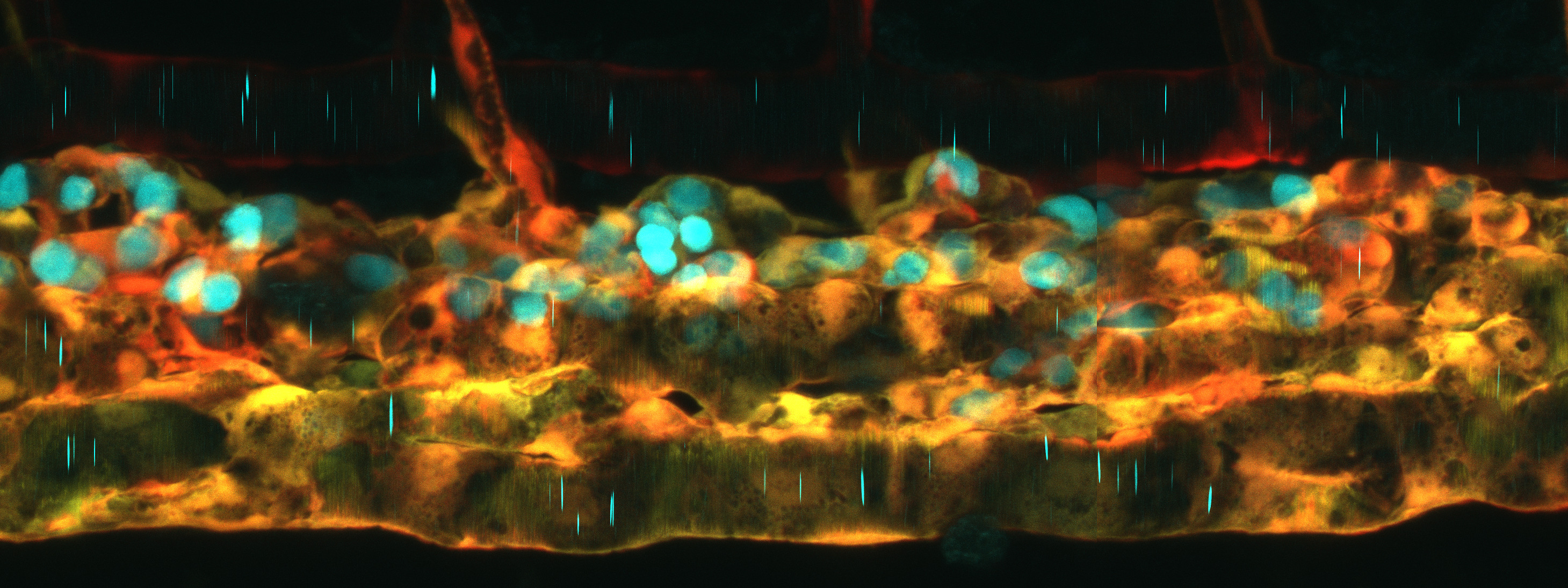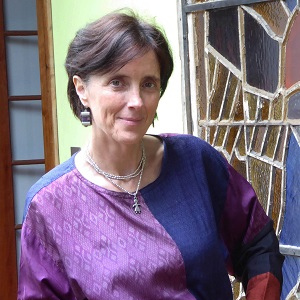News Splash Issue 14 Winter 2022
Letter from the President
Meet the PIEach issue of the News Splash highlights the research and careers of PIs who are members of the IZFS. We ask them to answer questions that were developed with input from graduate students and postdocs, reflecting their curiosity about the issues and challenges faced by zebrafish PIs from around the world.
Click here to read the Meet the PI features. Meet the ResearcherEach issue of the newsletter also highlights the research and developing careers of undergraduate, graduate and post-doc members of the IZFS: where they came from, where they hope to go, their challenges and inspirations.
Click here to read the Meet the Researcher features. Science SpotlightEach issue, we invite two early-career members of the zebrafish community to write an article in the newsletter covering recent high-impact zebrafish publications of their choice: one a technological innovation publication and one a new biological discovery. The Biological Discovery article in this issue is written by Dr. Adam Isabella, a soon-to-be P.I. at the University of Minnesota, while the Technology Development article in this issue of the News Splash is written by Dr. Clyde Pinto, a post-doc at the University of Warwick. If you are interested in a mentored science writing opportunity to contribute a Science Spotlight article for a future issue of the News Splash, contact Cecilia Moens (cmoens@fredhutch.org) and/or Karuna Sampath (K.Sampath@warwick.ac.uk). Planes, Trains, and autoinhibition domains: kinesin specialization regulates the behavior of distinct neuronal compartments Locomotion is a fundamental aspect of our lives. Even the laziest among us can rarely go more than a few hours without moving about, and society is ceaselessly enchanted with the invention of new devices to overcome our inherent locomotory limitations, from the simple – roller skates, bikes, electric scooters – to the incredibly complex – cars, trains, planes, spaceships. So fundamental is locomotion, in fact, that it does much more than just get us from point A to point B. For seemingly however far you zoom in on the workings of the human body, there you will find it. Examine our cells, and you will find immune cells marching through the body in search of foreign invaders and skin cells crawling to cover a wound. Zoom even further, to the very molecules that compose these cells, and you will find bustling actin and microtubule tracks upon which trains of motor proteins transport cargo. - continue reading - Seeing is believing, but seeing bigger is better! The amenability of zebrafish to be imaged both fixed and live has revealed many fundamental processes and the basis of disease states. However, the ability to distinguish between two closely spaced particles, is limited by the resolution of a conventional light microscopy which is around 200-300 nm for instance, when imaging GFP. While it is easy to resolve large structures such as cells and even nuclei, clarity is lost when examining smaller subcellular structures. Approaches with better resolution will be useful for studying nano scale structures such as centrosomes, nuclear pore complexes or even small cellular protrusions such as cilia and microvilli. Many ‘super-resolution’ microscopy techniques have been developed in recent years, but these for the most part, require specialized equipment that many labs cannot easily access. A recent approach, Expansion microscopy, turns the paradigm on its head by changing the sample instead of the microscope (Chen et al., 2015). - continue reading - Environmental Sustainability SpotlightUniversity of Toronto Trash Team The Environmental Sustainability Committee if the IZFS provides strategic recommendations to IZFS leadership regarding initiatives that can maximize the benefits of international scientific interactions and activities whilst minimizing environmental impact. Follow the Environmental Sustainability Committee on Twitter for tips and tricks to make research activities more environmentally sustainable and to learn more about research that helps save the planet. In this issue of the News Splash, ESC members Dr Maximilian Breuer, Viviana Vedder and Sunandan Dhar interview members of the University of Toronto Trash Team to learn about their efforts to reduce plastic waste in rivers and lakes around the world. Article written by Sunandan Dhar, (National University of Singapore). Science and SocietyArt and Science Like many, I initially watched in horror as young protesters hurled tomato soup at Vincent van Gogh's “Sunflowers” at the National Gallery in London, on Oct. 14. This was then followed by vegetable soup on "The Sower" (also Van Gogh) in Rome, and mashed potatoes on a painting from Monet’s “Haystacks” series in Germany (1). Many, but not all of the actions have been carried out by the group Just Stop Oil who according to their web site “ … demand that the UK government makes a statement that it will immediately halt all future licensing and consents for the exploration, development and production of fossil fuels in the UK.” (https://juststopoil.org/faqs/). These acts are part of the struggle against the focus on the cost of action and not the cost of inaction i.e. the economic costs of weaning ourselves off oil as opposed to the real costs of letting the climate spin out of control. As I contemplated these acts against culture my feelings changed from horror to admiration, and these young people caused me to question “value”. - continue reading - Upcoming EventsInternational Conference of Fish and Shellfish Immunology Asian Conference on Fish Models for Diseases European Zebrafish Society Conference Job PostsTo post to the IZFS Job Board you must be a member. Click here to join. If you have a job to post, please send an e-mail to info@izfs.org
Have an idea for the newsletter or would like to contribute? Contact us at info@izfs.org! We'd love to hear from you!
|
||||||||||||||||||||||||||||||






 Life is a balancing act, every day we are confronted by decisions where we project into the future trying to weigh the consequences of decisions made in the present. In the case of a group like the IZFS, decisions impact everyone, thus must be made with thoughtful consideration of all factors. Recently the Executive Committee made the decision to recommend to the Board of Directors that we do not take on the financial risk of planning the Strategic Conference for Zebrafish Investigators (SCZI) in 2023. The decision, made based on not only the factor of high costs but also a short time window, was subsequently approved by the Board of Directors (November 4th 2022).
Life is a balancing act, every day we are confronted by decisions where we project into the future trying to weigh the consequences of decisions made in the present. In the case of a group like the IZFS, decisions impact everyone, thus must be made with thoughtful consideration of all factors. Recently the Executive Committee made the decision to recommend to the Board of Directors that we do not take on the financial risk of planning the Strategic Conference for Zebrafish Investigators (SCZI) in 2023. The decision, made based on not only the factor of high costs but also a short time window, was subsequently approved by the Board of Directors (November 4th 2022). 


